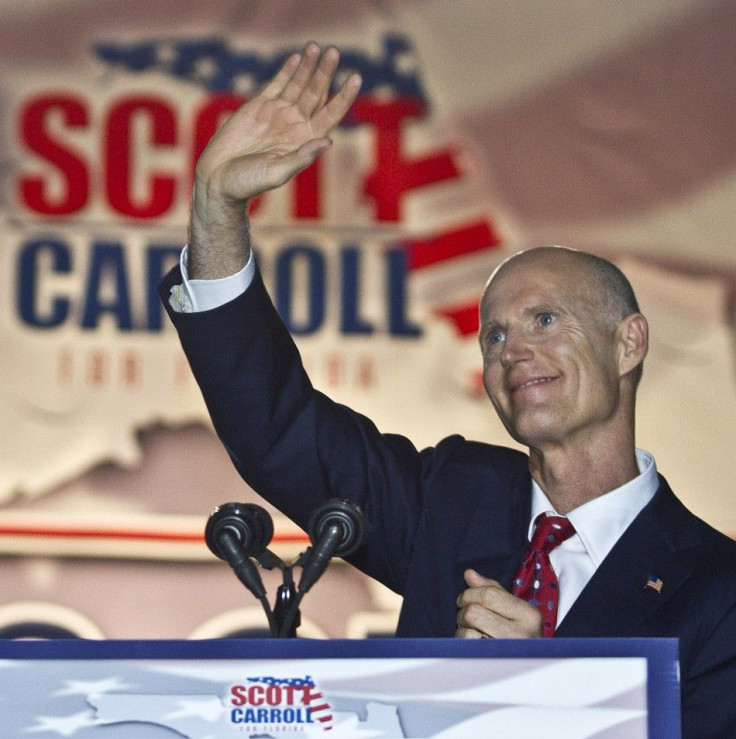Florida Joins Republican Pushback Against Medicaid Expansion

Florida has become the third state to reject the Affordable Care Act's Medicaid expansion, taking advantage of a Supreme Court ruling dictating that states cannot be forced to expand the health insurance program's reach.
While the Supreme Court's 5-4 ruling left intact a requirement that all Americans purchase health insurance, preserving the law's centerpiece, the court also undercut the law's mechanism that would have given millions more Americans access to Medicaid, a health insurance program aimed at low-income citizens.
The court ruled that the federal government cannot coerce states into accepting the Medicaid expansion by threatening to withhold existing levels of Medicaid funding. That means states can simply maintain their current level of Medicaid coverage and ignore the law's attempt to broaden the program.
On Sunday night, Governor Rick Scott of Florida announced that he would be opting out of the expansion. Scott, a Republican, joined two other Republican governors, Bobby Jindal of Louisiana and Scott Walker of Wisconsin, who will refuse the extra Medicaid funding.
The Medicaid expansion would make an additional 16 million Americans eligible for free health insurance and is central to the health care law's goal of universal coverage. The federal government is set pay for the vast majority of the expansion, which would cost some $930 billion between 2014 and 2022, including picking up the entire tab for the first three years.
But Republican governors are already renouncing the measure as a budget-buster. In a press release, Scott rejected spending approximately $1.9 billion more taxpayer dollars required to implement a massive entitlement expansion of the Medicaid program.
Scott also joined his Republican counterparts in refusing to implement the private health insurance exchanges that are the centerpiece of the law. Americans who earn under a certain amount but are not poor enough to qualify for Medicaid would get government subsidies to help them purchase insurance on the insurance exchanges, where different insurance companies would compete to appeal to customers.
The health care overhaul stipulates that every state must have an insurance exchange in place by 2014, but many Republican governors and legislatures have so far resisted building them.
Doing so carries a risk. If states do not set up the private marketplaces, the federal government will intervene and do it for them. But Republicans are hoping it won't come to that. Now that the Supreme Court failed to overturn the individual mandate that says everyone has to purchase health insurance, opponents are placing their hopes on Mitt Romney winning the presidential election and moving to repeal the law.
The full law does not take effect until Jan. 1, 2014, provided it is not repealed before that date, a press release from Scott's office noted, adding that should there be any legal obligation to implement ObamaCare, the state will follow the law.
This is not the first time Scott has turned away federal money. In 2011, the governor warned that the government had become addicted to spending, as he rejected $432 million intended to build a high-speed rail line from Orlando to Tampa.
© Copyright IBTimes 2024. All rights reserved.





















